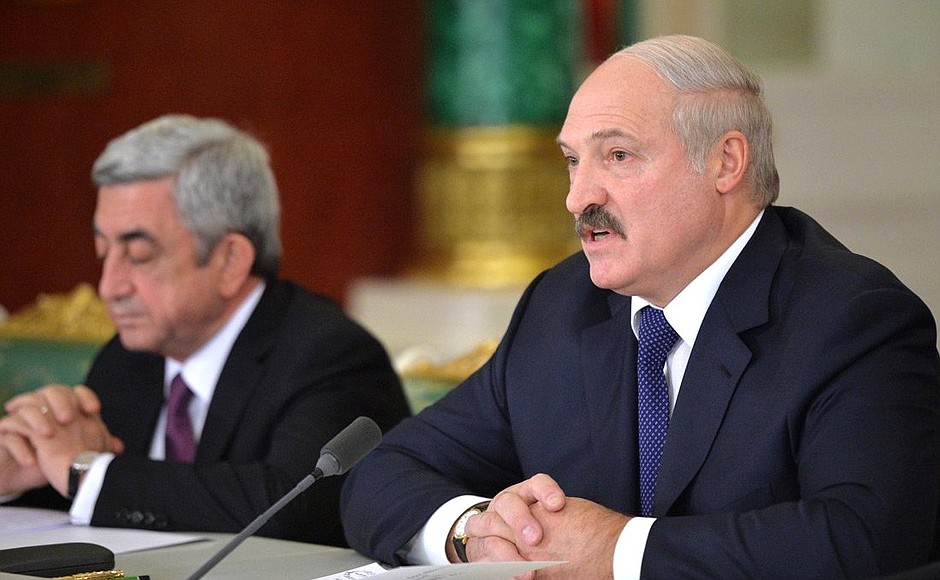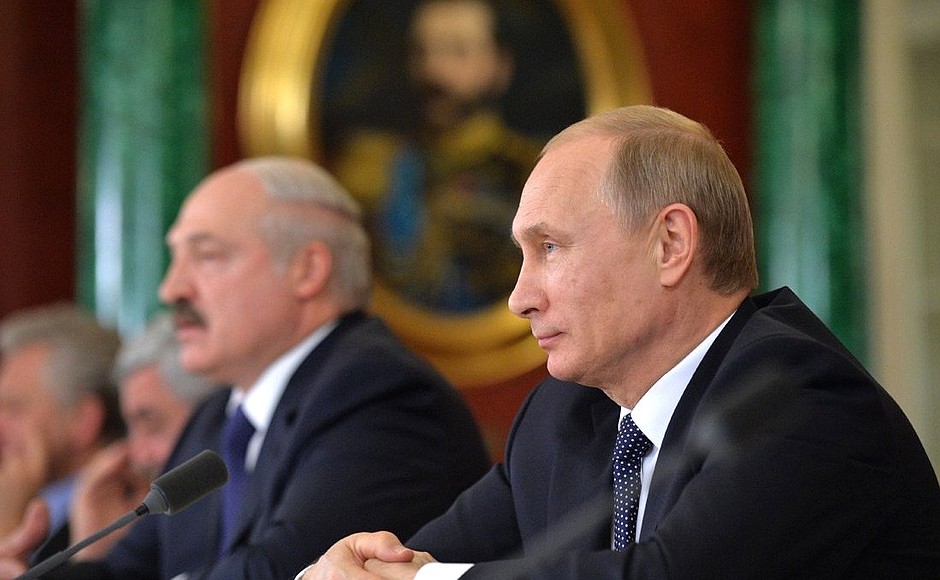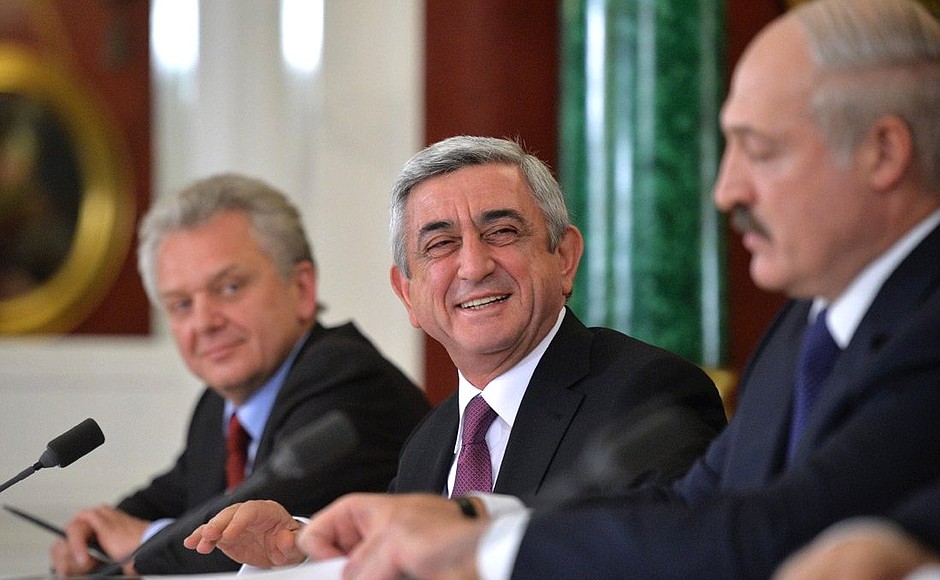President of Russia Vladimir Putin: Good afternoon, colleagues.
This year’s final session of the Supreme Eurasian Economic Council took place in a business-like and constructive atmosphere.
Together with the presidents of Belarus, Kazakhstan, Armenia and Kyrgyzstan, we discussed pressing issues dealing with the implementation of the Eurasian integration project. As you have seen, we have approved a big package of documents aimed at the further development of our trade and investment ties, strengthening the institutional basis of our integration and improving the functioning of its bodies – the Eurasian Economic Commission and Court.
In just a few days, on January 1, 2015 the new Eurasian Economic Union will become fully functional. Its creation is the result of the joint efforts of the three states’ leadership, the close cooperation of our Governments, the Eurasian Commission, experts and the business community.
Naturally, the political decisions were made by the Presidents. Now, in the presence of all my colleagues I would like to thank them for the joint work – complicated, but very necessary and highly professional.
We have consistently and successfully covered all the stages of integration, having started with the creation of the Customs Union, which was later transformed into the Common Economic Space. We gradually brought closer and synchronised our work in trade and other areas of the economy, while now we are moving on to the highest stage of integration – the unhindered movement of goods, services, capital and labour.
I want to remind you that we are creating a common market operating on the basis of the universal norms and rules of the World Trade Organisation with over 170 million consumers and a joint GDP exceeding $4 trillion [as per purchasing power parity].
I would like to highlight the fact that all the participants in this integration process can feel its benefits. Many of the old customs and administrative barriers have been removed. Business opportunities have grown significantly, as well as opportunities for implementing joint investment projects.
Union member-states will conduct a coordinated policy in a range of key areas, including industry, agriculture, transportation and energy, try to align sanitary, veterinary and technical norms and protect consumers’ rights.
The Agreement on the Eurasian Economic Union envisages the creation by 2016 of a common pharmaceutical market. Today we approved agreements regulating trade rules for medicines and medical equipment on the territories of our countries.
We intend to continue our efforts to create by 2019 a common electric power market, and by 2025 – a common market of oil, gas and petroleum products. In the same year of 2025, a supranational body is to become operational to control the Union’s financial market.
This year we have made a number of important decisions to expand our union. One can say that the ‘Eurasian three’ are turning into the ‘Eurasian five’. In October, Armenia joined the integration process. By today’s Council meeting Russia, Belarus and Kazakhstan have ratified the corresponding Agreement. We have just signed an accession Agreement with Kyrgyzstan. We firmly believe that Armenia’s and Kyrgyzstan’s membership in the Eurasian Union meets the national interests of these countries and opens up broad prospects for their social and economic development.
A growing number of members, in turn, benefits the Union, enhancing its market capacity, helping strengthen trade and economic ties and launch new investment projects. I would like to repeat that the Eurasian Union is open to working with all our neighbours and within the CIS; it is open to our partners both in the East and in the West.
I would like to stress that Eurasian integration is based on mutual benefit, mutual respect and consideration for each other’s views. All Union participants have equal rights and equal obligations and are represented in its governing structures.
Today we made a decision on the Presidency procedure in the Eurasian Economic Union. In 2015, Belarus will assume Presidency. We would like to wish our friends every success.
We still have a lot to do to turn the Eurasian Union into a powerful centre for economic growth. We are fully aware of where we stand, what state our economies are in and their weak spots and what world we live in. Clearly, joining efforts will help us overcome all the existing challenges.
In conclusion, I would like to repeat that I believe the results of today’s meeting have been positive. Most importantly, we have established very specific milestones and made plans for the future. I am certain of the success of our further joint efforts for the benefit of our nations.
Thank you for your attention.


